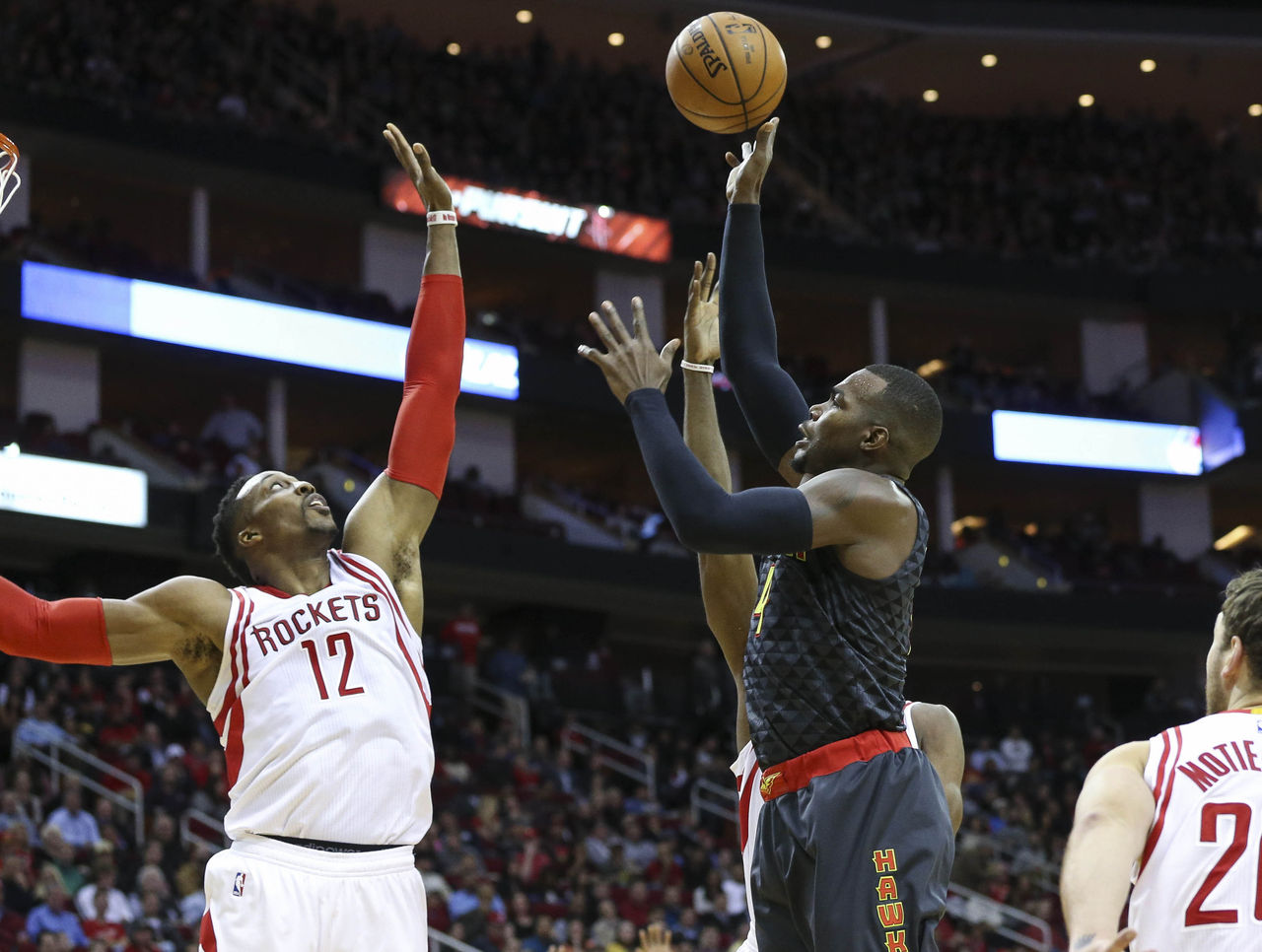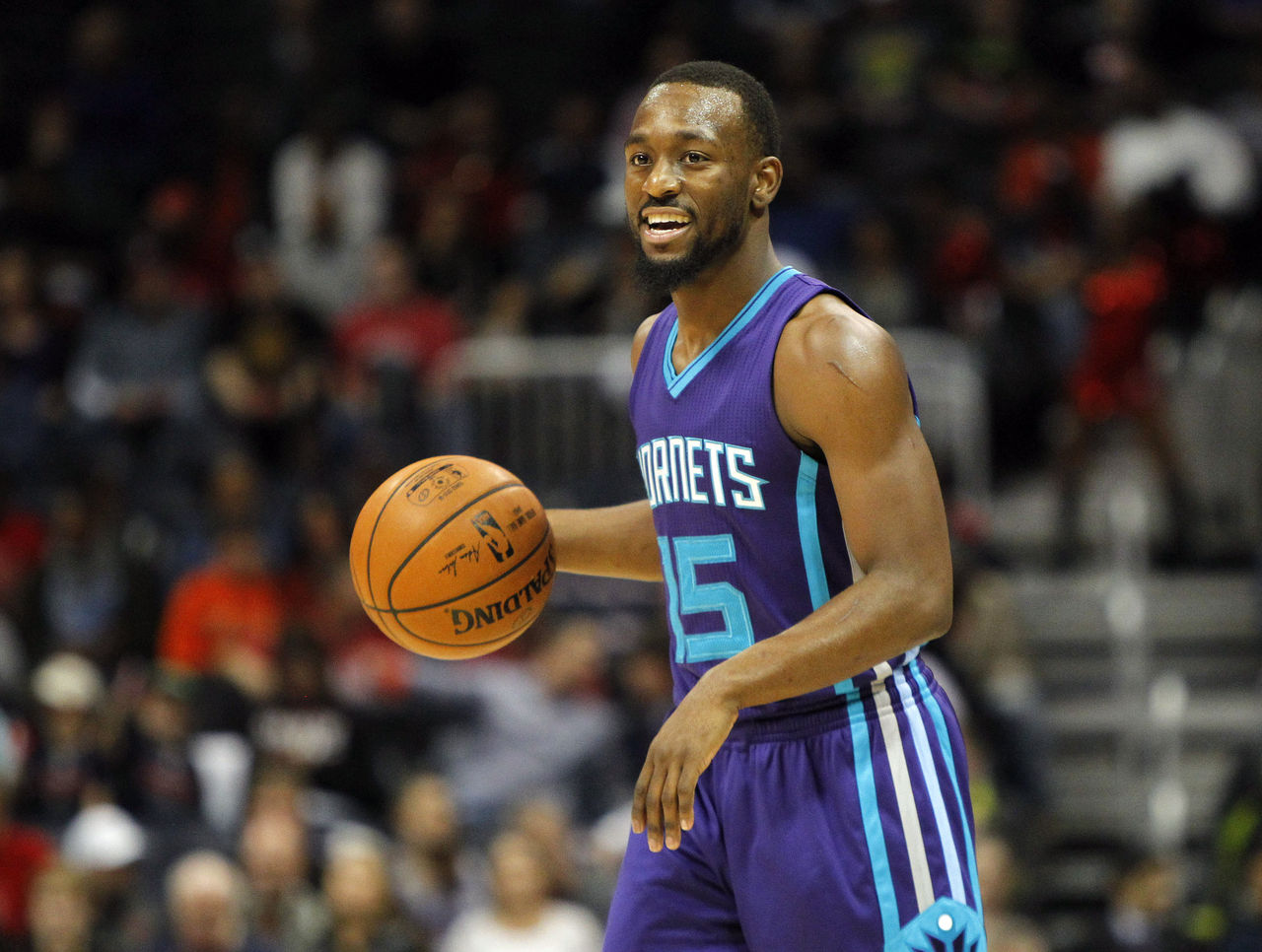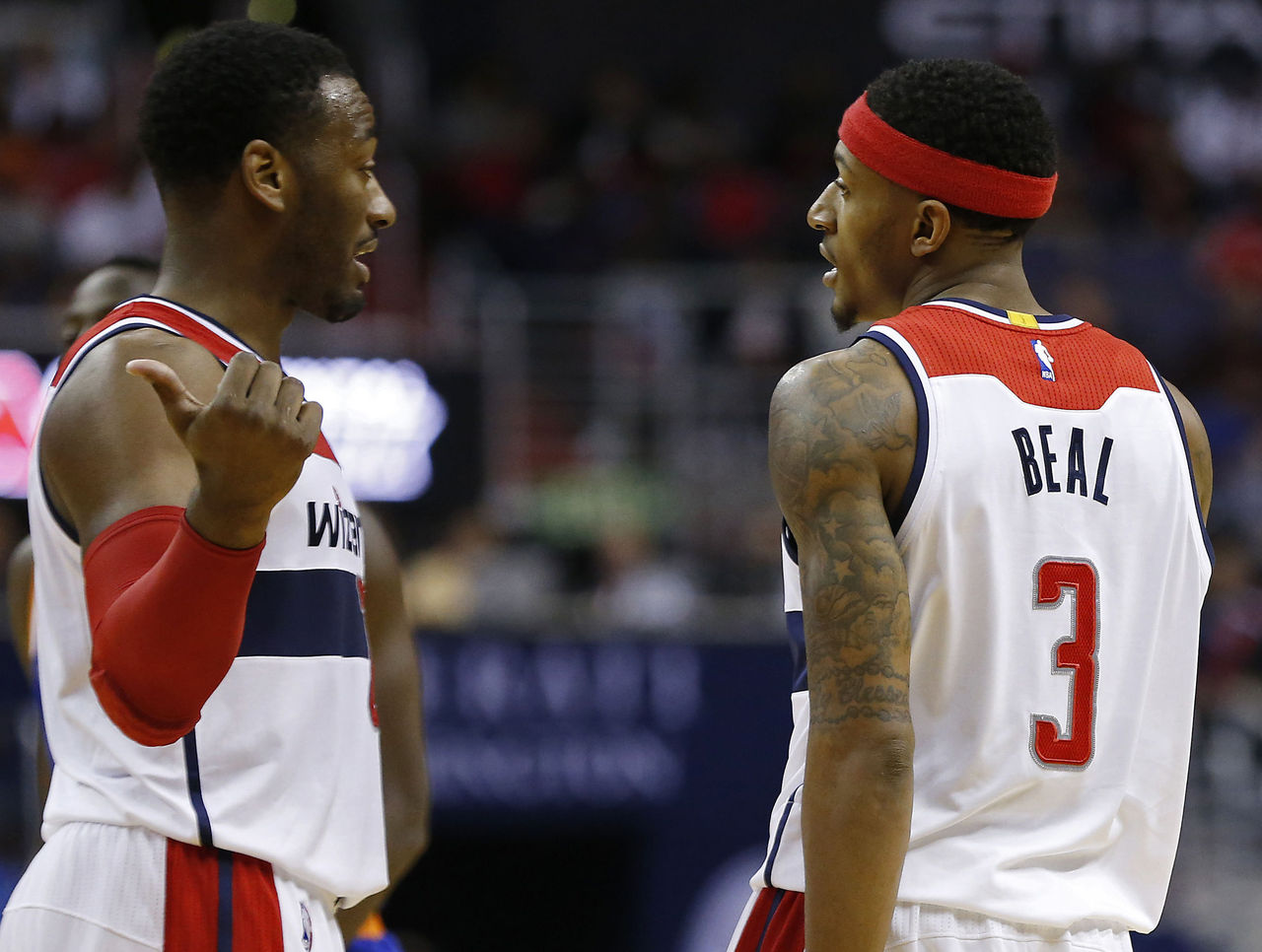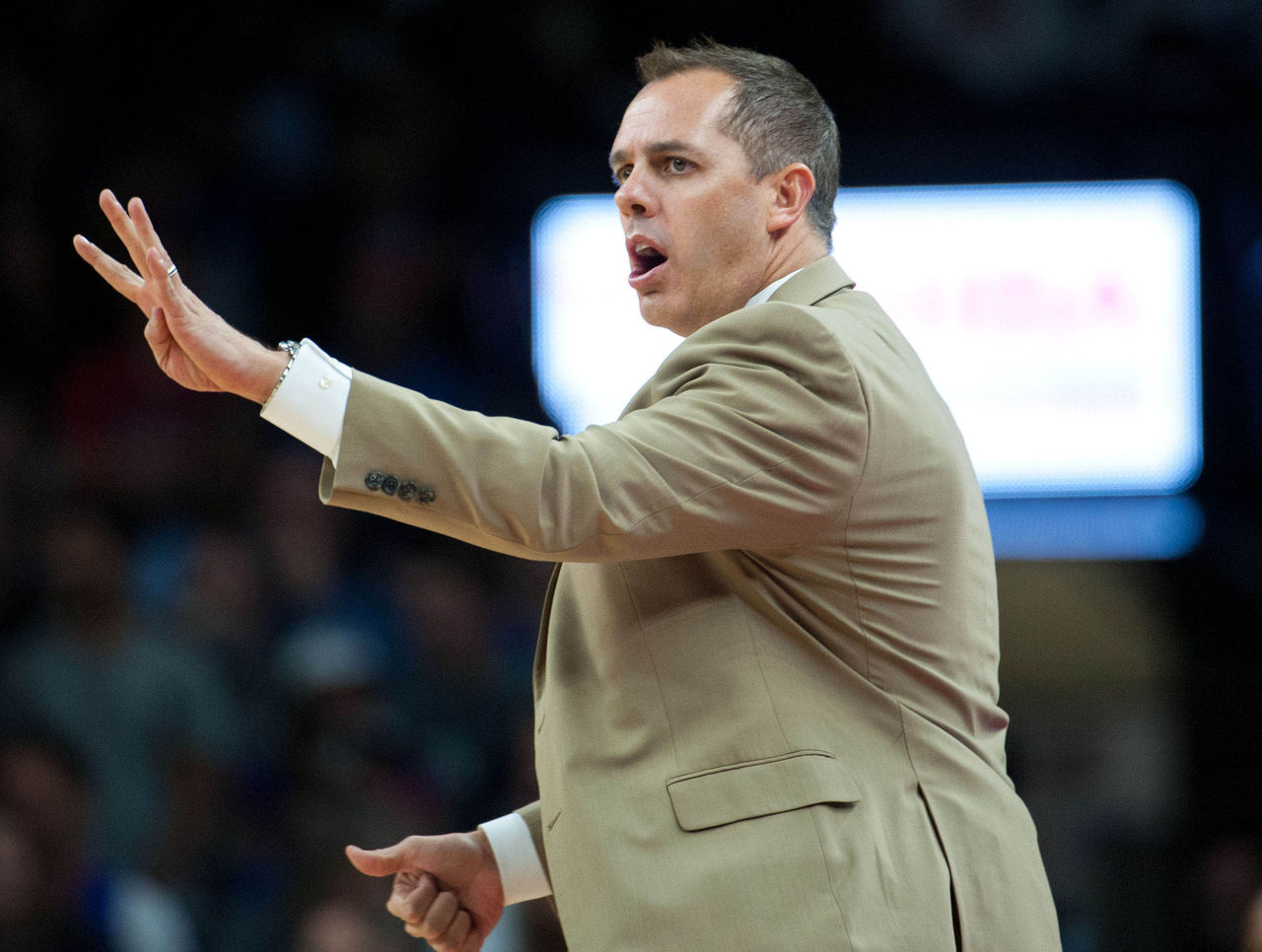2016/2017 Fantasy Outlook: Southeast Division
Throughout the month of October, theScore will examine the offseason moves and biggest fantasy storylines of each NBA team. This edition focuses on the Southeast Division.
Division Outlook
Atlantic | Central | Southeast
Pacific | Southwest | Northwest
Miami Heat
Big Picture: This Miami Heat team will look dramatically different from last year. No one has a firm idea of what the first Dwyane Wade-less Heat squad will look like for the first time in 13 seasons. Throw in the end of Chris Bosh's tenure in south Florida and the departures of veterans Luol Deng and Joe Johnson and this has the makings of a transitional season.
Look for Goran Dragic to take on a dominant role as the lead ball-handler, which could help him return to the level of statistical production he saw in Phoenix. Despite plenty of young talent on the wings in Justise Winslow, Tyler Johnson and Josh Richardson, Dragic is the only veteran who has proved he can run an offense for an above .500 team. At least there will be plenty of shots and rebounds available with all the talent leaving South Beach.
X-Factor: Sharing the frontcourt with Bosh would've likely kept Whiteside at 30 MPG; in the 45 career games in which he has played 30-39 minutes, Whiteside has averaged 16.2 points and 13.6 rebounds. Bosh's absence still creates concern for how Miami's offense will look. Whiteside took 94.7 percent of his shots (9.3 per game) after one or zero dribbles.
If Josh McRoberts (a career 33.6 percent 3-point shooter) can't draw the defense's second interior defender out of the paint, Whiteside will have to diversify his game to avoid the added pressure of nearby defenders. He took 9.3 shots per game last year and while that will be on the rise, it won't be because he'll see more offensive rebound putbacks - that's a matter of game flow, not scheme. Whiteside needs to develop post-moves, and quick.

Atlanta Hawks
Big Picture: The Hawks made two notable moves in the offseason: they traded away Jeff Teague, elevating Dennis Schroder to the starting role, and replaced Al Horford with Dwight Howard in the frontcourt. The team felt they knew what they had in Teague after seven seasons and decided to gamble on the dynamic upside of Schroder, who impressed in 20.3 MPG last season.
94.8 percent of Howard's shots came within arm's range of the hoop. Horford's ability to stretch the floor allowed All-Star Paul Millsap more room to operate. Millsap will have to improve his 3-point shooting (31.9 percent) and mid-range (37.1 percent) to optimize his fantasy production alongside Howard. With Teague gone, he could see an increase in assists with Howard rolling to the rim, while continuing to kick out to the perimeter for threes.
X-Factor: The Hawks lost a lot of steady playmaking in Teague and Horford, and have to hope that the pieces they retained can fill in the cracks. Much of that will fall on the returning veterans on the wings. In particular, Kyle Korver needs to bounce back from a down shooting year; after leading the league in 3-point percentage two years in a row, he shot just 39.8 percent last season.
This season will come down to Schroder taking the next step forward. He averaged 11 points and 4.4 assists in just over 20 MPG last season but has averaged 16.6 points, 7.0 assists and 3.7 rebounds when playing 30-39 minutes in a game. There's a chance that he is this season's breakout fantasy star, outproducing his current ADP of 67.

Charlotte Hornets
Big Picture: The most significant change was losing longtime big Al Jefferson to the Pacers in free agency - which isn't much of a loss. Jefferson's final season in Charlotte was marred by injury, suspension and statistical regression. The Bobcats enter 2016-17 with a frontcourt rotation of Marvin Williams, Cody Zeller, Frank Kaminsky and Spencer Hawes, as well as a dark horse candidate for the starting center job.
Two-time All-Star and one-time All-Defensive second team player Roy Hibbert joins the fray, hoping to resuscitate his career. At his best, Hibbert was a solid depth center in fantasy, averaging 10-plus points and eight rebounds a game with great block totals. He'll be worth a speculative late-round flier if he wins the starting job. After failing to cement a role in Los Angeles, it's unlikely he's got much more to offer fantasy owners
X-Factor: Former No. 2 overall pick Michael Kidd-Gilchrist vowed to enter the 2015-16 season with completely rebuilt shot mechanics after shooting just 37.1 percent on shots further than 16 feet in his third year. He missed the first half of the season after a preseason injury, but returned for seven games, averaging a career-high 54.1 percent from the field and 42.9 percent from 3-point land. Then a second injury wiped out the rest of his campaign.
That seven-game sample is reason enough to target him with a late-round pick. Increased utility in the offense could get him over 30 MPG for the first time in his career, leading to increased scoring, rebounding and defensive production. His rise in fantasy stock could be on par with Jae Crowder's last season, when the Celtics' wing went from defensive specialist to all-around producer. At an 11th-round pick, there's little downside.

Washington Wizards
Big Picture: Health is the biggest concern for the Wizards heading into this season and the conversation begins and ends with their starting shooting guard. Bradley Beal has missed 81 games since the start of his rookie year, and 2015-16 saw him miss the most time yet, as he played just 55 games.
Of the 27 games Beal missed, 16 came from December 11 to January 11. Remarkably, point guard John Wall averaged 19.7 points and 11.4 assists per game in that stretch without Beal; Wall averaged 19.9 points and 10.2 assists overall last season. If anything, Wall played slightly better in some areas without Beal. Wall's production appears to be teammate-proof; he warrants a late-first, early-second-round pick, regardless of Beal's health.
X-Factor: Incoming coach Scott Brooks took a lot of heat for his rotation management and offensive sets during his time in Oklahoma City. It's tough to project how he might approach Washington's offense - with respect to Wall, the team doesn't feature offensive juggernauts like Kevin Durant and Russell Westbrook - but if Westbrook's usage in previous years is any indication, Wall could be in for a career year.
Over the past four seasons, Wall's usage rate averages out to 27.6 percent; in the final four seasons of the Brooks-led Thunder, Westbrook averaged a usage rate of 34.5 percent. Brooks will try to evolve beyond the isolation-heavy sets that brought much derision in his first coaching tenure, but the Wizards' offense should still become even more Wall-centric. An increase in shot attempts will lead to more points and more 3-point shots made.

Orlando Magic
Big Picture: This has been a franchise-altering summer for the Magic. They brought in new head coach Frank Vogel, swapped former second-overall pick Victor Oladipo for Serge Ibaka and added free-agent defense-and-rebounding specialist Bismack Biyombo. That makes for a very deep frontcourt and a shallow backcourt - perhaps too shallow.
The pressure is on Elfrid Payton to quickly grow into an effective play-maker; someone has to get the ball into the hands of Ibaka, Biyombo and holdovers Nikola Vucevic and Aaron Gordon. The chart below ranks Orlando's four main bigs along with the rate of made shots that come on unassisted field goals:
| PLAYER | FGA | FGM %UAST |
|---|---|---|
| N. Vucevic | 16.1 | 39.0 |
| S. Ibaka | 8.6 | 20.8 |
| A. Gordon | 7.4 | 40.0 |
| B. Biyombo | 4.3 | 27.3 |
X-Factor: How will Vogel's system translate to his new team? With many teams emphasizing free-flowing, pace-and-space offenses, Vogel's time in Indiana was spent building a contender from the defensive end. In each of the past five seasons, the Pacers ranked in the top-10 in defensive efficiency but they averaged just 97.7 points per game of their own over that span; that would have ranked 28th in 2015-16.
From a fantasy perspective, that doesn't bode well. No one on this team has the physical ability and skill to carry the offense on his own; just because Paul George was a fantasy stud in a low-scoring offense doesn't mean that anyone on the current Magic roster is primed for that production. Be patient on draft day with players like Ibaka and Vucevic. Their inability to create their own offense mixed with Vogel's typical system could spell disappointment.